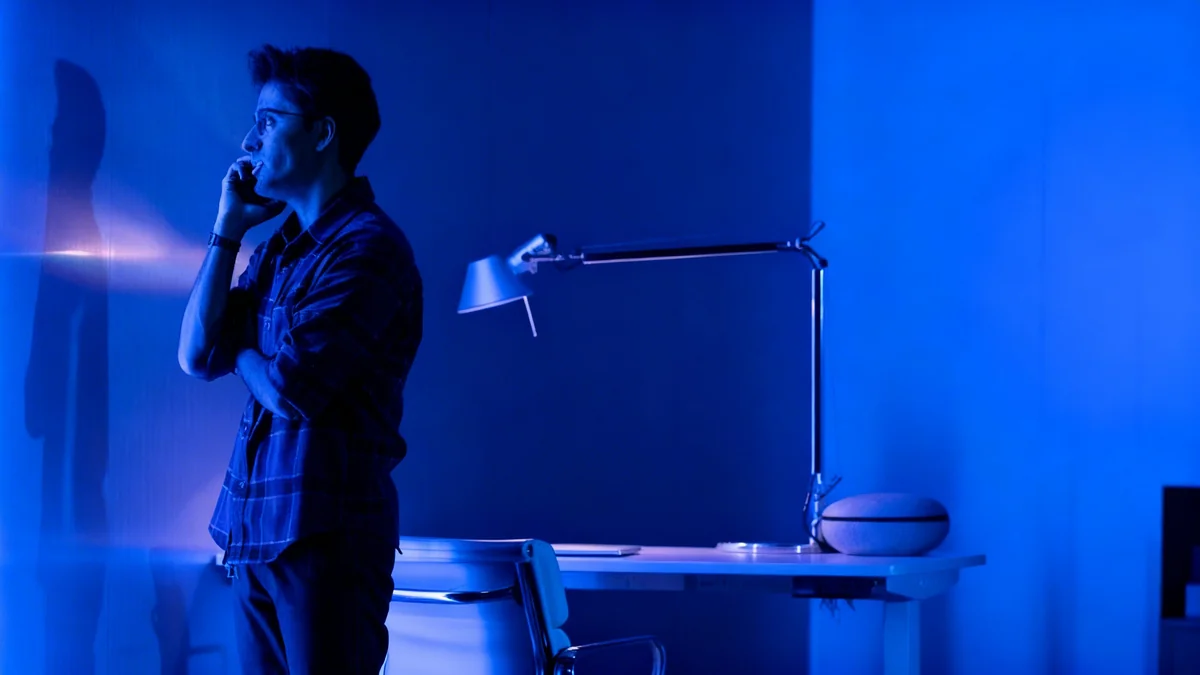The legacy of actress Suzanne Somers is set to continue through an artificial intelligence (AI) twin, a project spearheaded by her widower, Alan Hamel. This digital recreation, trained on Somers' extensive body of work, aims to preserve her memory and connect with fans. Hamel revealed the AI twin can recall details from her career, her marriage, and engage in conversations, bringing a new dimension to celebrity remembrance.
The initiative has generated considerable discussion, particularly on social media, with many drawing parallels to themes explored in the science fiction series Black Mirror. Despite the mixed reactions, Hamel is committed to fulfilling what he says was his late wife's wish to explore this technology.
Key Takeaways
- Suzanne Somers' widower, Alan Hamel, developed an AI twin of the late actress.
- The AI is trained on 27 books and hundreds of interviews by Somers.
- The project was Somers' idea, inspired by conversations with Ray Kurzweil decades ago.
- Hamel envisions the AI twin appearing in new 'Three's Company' episodes.
- Fans will eventually be able to interact with the AI twin on SuzanneSomers.com.
The Genesis of the AI Twin
Alan Hamel, 89, explained that the concept of an AI twin was not a new idea. He stated that his wife, Suzanne Somers, first expressed interest in this technology decades ago. Their friendship with futurist Ray Kurzweil, whom Bill Gates once called "the smartest man on the planet," played a significant role in sparking Somers' imagination about digital immortality.
Hamel recalled conversations from 30 years ago where Kurzweil discussed the future of AI. "We knew it was coming," Hamel said. "It took decades to happen, but he knew it was going to happen, and he shared that information with us." This early exposure to the potential of AI laid the groundwork for the current project.
"It was Suzanne's idea. And she said, 'I think we should do that. She said, I think it'll be very interesting and we'll provide a service to my fans and to people who have been reading my books who really want and need information about their health.'"
Training the Digital Persona
The "Suzanne AI Twin" is a sophisticated robot developed by Realbotix Corp. Its ability to mimic Somers' personality and knowledge comes from extensive training data. Hamel confirmed that the AI has been fed "all of Suzanne's 27 books and a lot of interviews that she has done, hundreds of interviews." This comprehensive dataset ensures the AI can answer a wide range of questions, drawing from Somers' own words and experiences.
AI Training Data
- 27 books: All of Suzanne Somers' published works.
- Hundreds of interviews: Extensive media appearances and discussions.
- Goal: To enable the AI to answer any question as Somers would.
Hamel witnessed a demonstration of the AI twin earlier this year and was reportedly amazed by its accuracy. "It was Suzanne. And I asked her a few questions and she answered them, and it blew me and everybody else away," he shared. He also noted the striking visual resemblance: "When you look at the finished one next to the real Suzanne, you can't tell the difference."
Future Aspirations for the AI Twin
Beyond simply preserving her memory, Hamel has ambitious plans for the Suzanne AI Twin. He envisions the digital recreation having a presence on the small screen. Once the robot is "perfected," Hamel intends to approach the distributor of 'Three's Company' to propose additional episodes featuring the AI twin.
He hopes to convince the estate of the late John Ritter, Somers' co-star in 'Three's Company,' to consider creating an AI model of Ritter as well, potentially allowing the beloved comedy series to continue with its original stars in digital form. Hamel believes Somers would have endorsed this continuation.
A New Chapter for 'Three's Company'?
The idea of using AI to revive classic television series is a novel concept. If successful, it could set a precedent for how beloved actors and shows might continue to entertain audiences long after their original runs.
Fan Engagement and Accessibility
Hamel's immediate plan for the AI twin involves making her accessible to fans. "Once I'm satisfied that we have everything, then we'll put her on SuzanneSomers.com and we'll invite all her fans and all our customers to come and talk to her," he explained. He envisions the AI twin as a 24/7 resource where fans can "just hang out with her" and ask any questions they desire.
This direct interaction aims to provide a unique service to those who admired Somers, particularly those who sought health information from her books and interviews. Hamel views this as a way to fulfill Somers' desire to continue providing information and connection to her audience.
Public Reaction and Ethical Considerations
The announcement of the AI twin has sparked a range of reactions across social media platforms. Many users expressed astonishment, with several commenting that the concept felt like an episode of the dystopian sci-fi series Black Mirror.
- One user wrote: "feels like an episode of Black Mirror."
- Another remarked: "Makes Black Mirror look like sesame street."
- Comments like "Seems kind of creepy" and "I’m definitely getting Pet Cemetery AI edition vibes" highlight the public's mixed feelings about digital resurrection.
Despite these concerns, Hamel remains confident in the project. He stated, "I think she would smile a lot and be really happy about it. She would endorse it. I’m happy about it. My family is happy about it."
Suzanne Somers' Legacy
Suzanne Somers passed away in October 2023 at the age of 76, following a battle with cancer. She was married to Alan Hamel for 45 years. In her final days, Somers reportedly encouraged Hamel to live his life fully after her passing, telling him, "I don't want you to mope around after I'm gone." This AI project, in Hamel's view, honors her spirit and wishes.
The development of the Suzanne AI Twin represents a significant step into the evolving landscape of artificial intelligence and its application in preserving human legacies. As technology continues to advance, the ethical and societal implications of creating digital versions of deceased individuals will likely remain a subject of intense debate and fascination.





